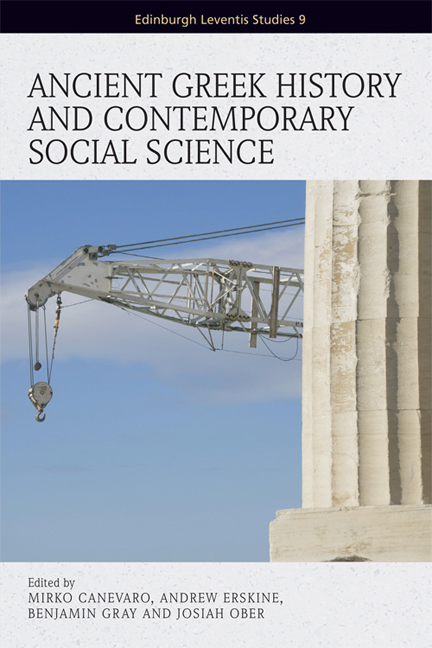5 - Rethinking Mass and Elite: Decision-Making in the Athenian Law-Courts
Published online by Cambridge University Press: 06 May 2021
Summary
INTRODUCTION
In the Athenian law-courts, wealthy, educated and well-born elites fought one another to prevail as leaders and advisors of the masses. Regulated by the masses’ ideals of a good society, elite competition pushed Athens towards stability, prosperity and cultural immortality. Or did it?
Classical scholarship has long analysed interactions in the lawcourts as a contest among elite litigants and mass jurors. The ‘mass and elite model’ (henceforth, M&E) owes its original elaboration to the work of Josiah Ober (1989). For Ober, Athenian political stability in the fourth century was the product of ideological negotiations between masses and elites carried out through the medium of rhetoric. Rhetorical discourse allowed the Athenians to manage the tensions arising from the existence of economic and social inequality in the context of a democratic system based on political equality. In the decision-making institutions of the polis – including, but not limited to, the law-courts – the masses regulated elite ambition by pitting elite advisors against each other and by bestowing honours on good advisors. In Ober's own words (1989: 333), ‘the ideological hegemony of the masses effectively channeled the fierce competitiveness of elites … into patterns of behaviour that were in the public interest’. In this way, the Athenians were able to reap the benefits of having elite advisors – which were necessary for policy in a direct democracy – while preventing the elite from becoming a ruling elite – because their power was always provisional and subject to the dêmos’ delegation.
For analytical purposes, we make explicit three implicit assumptions in the M&E model:
Assumption 1 (sociological assumption): Litigation in Athens is a game played by elite litigants and mass jurors.
Assumption 2 (operative assumption): Elite litigants seek to win over their opponents as a means to gain honour.
Assumption 3 (operative assumption): Mass jurors have monolithic preferences.
In this chapter, we draw on the findings of two separate bodies of literature, one in classics, and one in political science, to put pressure on these assumptions. Our goal is to provide a more nuanced account of the dynamics regulating decision-making processes in the Athenian law-courts.
Before we continue, however, a note of clarification is in order.
- Type
- Chapter
- Information
- Ancient Greek History and Contemporary Social Science , pp. 157 - 183Publisher: Edinburgh University PressPrint publication year: 2018



